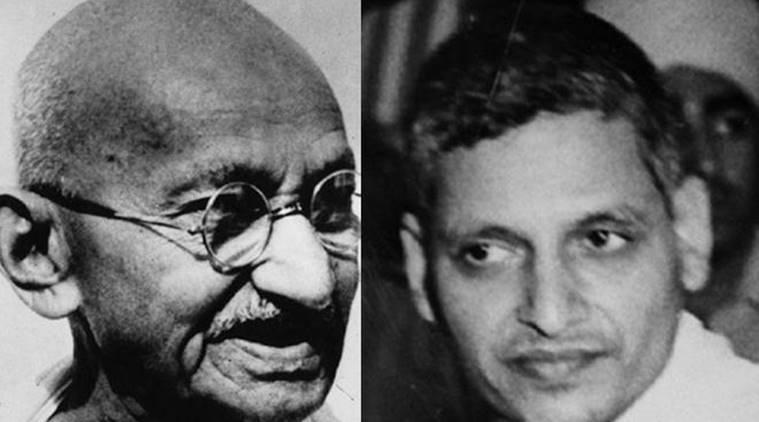Right to worship is an exclusive fundamental right. It is also part of freedom of expression, to praise anybody or criticise. Citizens have every right to point out defects of Gandhi and endorse reasons given by Godse for his act of elimination of Gandhi. We, the people are variety of desh bhakths. We love and worship, whomever we like. Perhaps, only for this, we extensively exercise our rights under Article 19(1)(a), Freedom of Speech and Expression and Article 25 Freedom of Conscience and Free Profession, Practice and Propagation of Religion.

We build temples for any person from God, Gandhi to Godse, and personalities like Amitabh Bachchan, Sachin Tendulkar, Khushboo and Sonia Gandhi. Also Read – Race, sexual politics in spotlight at Broadway’s Tony awards Advertise With Us Kamal Haasan, actor-turned-politician is free to say that Godse was the first Hindu terrorist and the BJP’s candidate and now MP, Sadhvi Pragya Singh Thakur, describes him as desh bhakth. Haasan reportedly said at a public meeting in Tamil Nadu on May 12: “Free India’s first terrorist was a Hindu, his name is Nathuram Godse. There it (terrorism) starts”. Then after four days, Sadhvi Pragya Singh Thakur exercised her Constitutional freedom by saying, “Nathuram Godse was a desh bhakt, is a desh bhakt and will remain a desh bhakt.”
Exercising his creative expression right, Kamala Hassan scripted, acted, directed ‘Hey Ram’ movie, where hero Saket Ram Iyengar thinks like Godse and plans like him to kill Gandhi. ‘Hey Ram’ is an Indian alternate historical fiction released in 2000. Saket Ram Iyengar played by Kamal, plans like Nathuram Godse to eliminate Gandhi alleging pro-Pakistan politics. By the time Saket Ram reaches Delhi he starts admiring him, and then gets surprised to see Godse firing bullets at the Father of the Nation. When Kamal Haasan categorised Godse’s act as terrorism or extremism, he must have forgotten that 19 years ago he tried to justify the attempt in Hey Ram for his cinema commerce. Whether this political drama of Kamal supports the Godse’s terrorism, so called by him?
Interestingly, both Kamal and Pragya have exercised their freedom to retract their statements like Saket in Hey Ram changed his mind in the last phase. Kamal Haasan said he did not use the word terrorist but said he was an extremist. Sadhvi Pragya Singh Thakur, under pressure from the BJP leadership, apologised and withdrew her statement. Prime Minister said he cannot forgive her for this. She is elected to Lok Sabha from Bhopal and she is one among 353 who elected Modi as leader again.
Even Godse has repented! According to G D Khosla, a High Court judge who heard appeal in Punjab High Court, the assassin Godse repented for his deed and vowed to work for peace like Gandhi. Justice G D Khosla, a member of three-judge Bench, who heard the appeal filed by Godse and his co-convicts against the trial court’s verdict in the Mahatma Gandhi’s assassination case, published a book in 1965 recording the legal aspects of these events. Justice Khosla observed “the decision to strike was taken on January 13, when it was learnt that Mahatma Gandhi had started his fast to put pressure upon the Government of India and compel it to review its former decision to withhold the payment of 55 crores rupees to Pakistan… the conspirators could wait no longer”.
According to Justice Khosla, Godse had “repented his deed and declared that were he to be given another chance he would spend the rest of his life in the promotion of peace and service of the country”. If this is true, it means, even Godse changed his mind about Gandhi’s peace mission. (Godse did not appeal neither on his conviction nor on death sentence. He only preferred appeal on a limited point of conspiracy).
It’s interesting that two politicians, Godse and a principal character of a movie “Hey Ram’ also changed their minds. Another dispute is whether Gandhi said ‘Hey Ram’ at the end of his life. Kamal’s movie cleverly avoids it as Gandhi in ‘Hey Ram’ dies without spelling ‘Hey Ram’.
With all this backdrop, what moral right Pragya and others have to categorise Godse as desh bhakt? We the people, build temples for both Gandhi and Godse. We defeat Kamal and his candidates but elect Pragya Thakur from Bhopal. What moral right we have to say either Godse or Gandhi are correct?
On November 16, 2017, Hindu Mahasabha at its office in Daulatganj in Gwalior district laid foundation stone for construction of a temple in the name of Nathuram Godse, though district administration has not permitted it. A statue has already been put up in their office and they observe November 15, 1949, the day on which he was hanged to death as ‘sacrifice day.’ Later the Gwalior administration gave a notice to remove the temple from that place.
On May 21, 2019, the police arrested six Hindu Mahasabha activists in Surat for allegedly celebrating the birth anniversary of Nathuram Godse, with lighting lamps, singing bhajans and exchanging sweets. It appears they have built a temple there for Godse. There are temples for Gandhi at several places, including one in Sambalpur, Orissa, and another in Peddakaparthi village of Nalgonda district in Telangana.
If these love-hate conflicts of Gandhi and Godse impacted the campaign and impressed voters, God only must save our democracy. Because we, the people of India, are desh bhakths, and we decide our democracy.
(The writer is former Central Information Commissioner and Professor of Law, at Bennett University, Greater Noida)
Courtesy : Hans News Service, published on 4 Jun 2019.
https://www.thehansindia.com/hans/opinion/news-analysis/right-to-analyse-gandhi-and-appraise-godse-534835
